【小升初】英语专题复习-一般将来时2.ppt
- 格式:ppt
- 大小:1.17 MB
- 文档页数:9
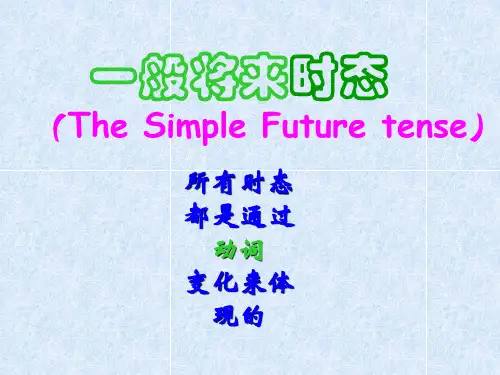
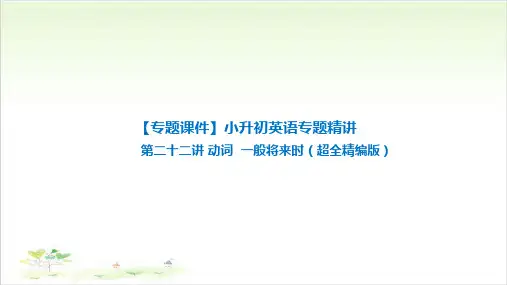


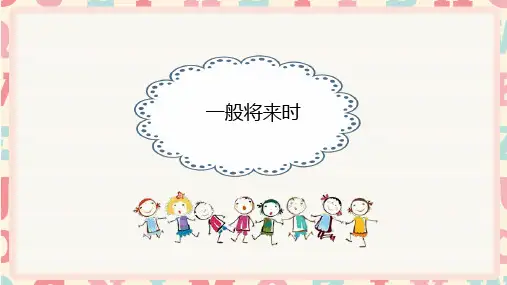
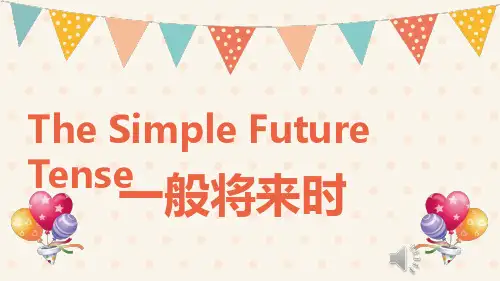
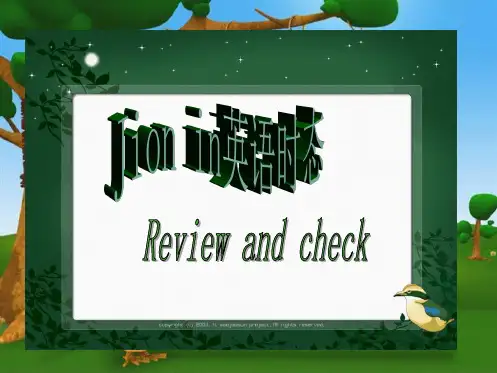
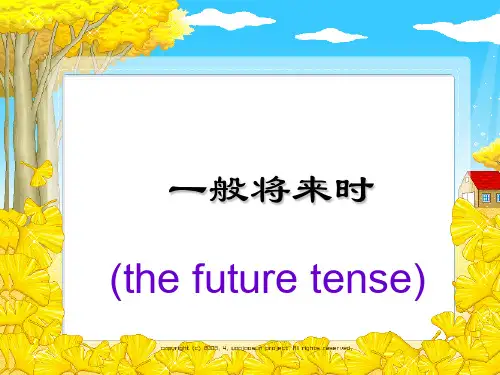
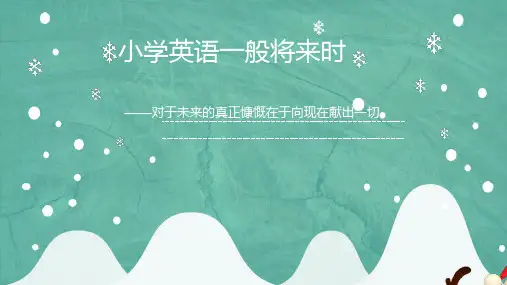
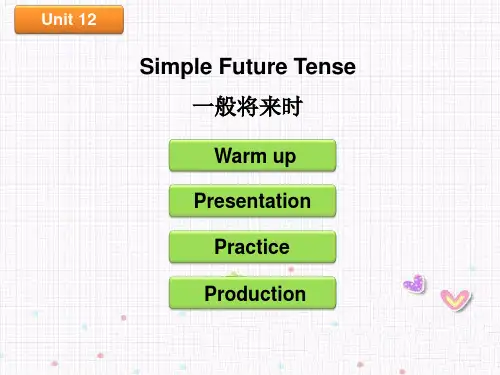

通用版小学英语小升初语法句型转换-一般将来时课件(共27张PPT)(共27张PPT)一般将来时simple future tense一般将来时表示:①将来某个时间要发生的动作或存在的状态,②也可以表示将来经常发生的动作,③常与表示将来的时间状语连用。
一般将来时的定义be going to +动词原形表示打算、准备做某事或即将发生/肯定要发生某事。
当主语是I 时,be 用am;当主语是第三人称单数时,be 用is;当主语是其他人称时,be 用are。
2. will/ shall +动词原形表示将要发生的动作或情况,没有太多的计划性,还可用来表示意愿。
主语是第一人称时常用shall,也可用will;其他情况全部用will。
一般将来时的句式结构(1)肯定句一般将来时的句式结构如:I am going to the cinema tonight.今晚我打算去电影院。
My brother is going to buy a pair of shoes this afternoon.今天下午我哥哥打算去买一双鞋。
主语+ be going to +动词原形.一般将来时的句式结构(2)否定句:主语+ be + not going to +动词原形+其他.如:I am not going to plant trees this weekend. 这个周末我不打算去种树。
They aren’t going to climb mountains this week.这周他们不打算去爬山。
(3)一般疑问句及答语:be动词提前,剩下照抄,句末挂问号。
Be +主语+ going to +动词原形+其他肯定回答:Yes, 主语+ is/ are/ am.否定回答:No, 主语+ isn’t/ aren’t 或I’m not.一般将来时的句式结构(3)一般疑问句及答语:如:—Are you going to the park next week下周你打算去公园吗?—Yes, I am. 是的,我打算去。